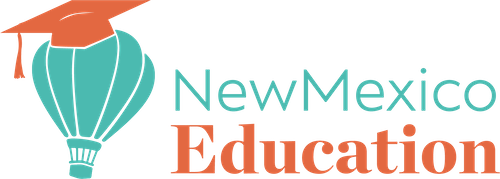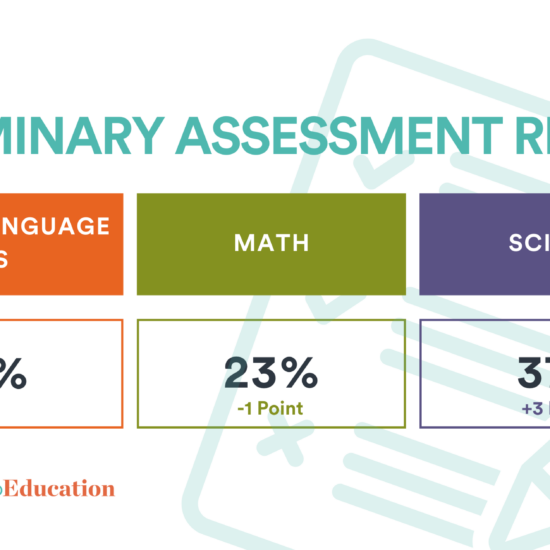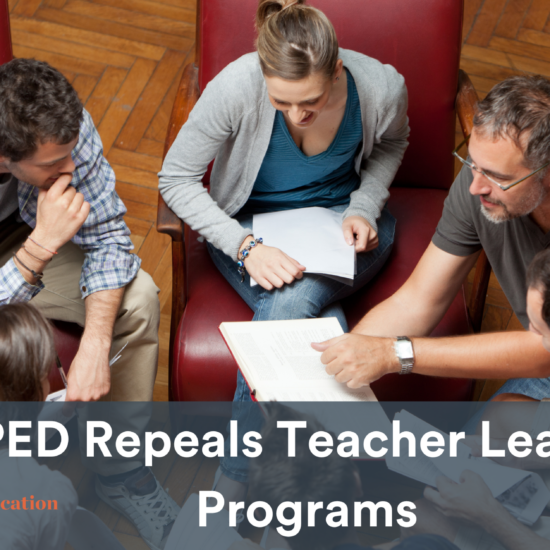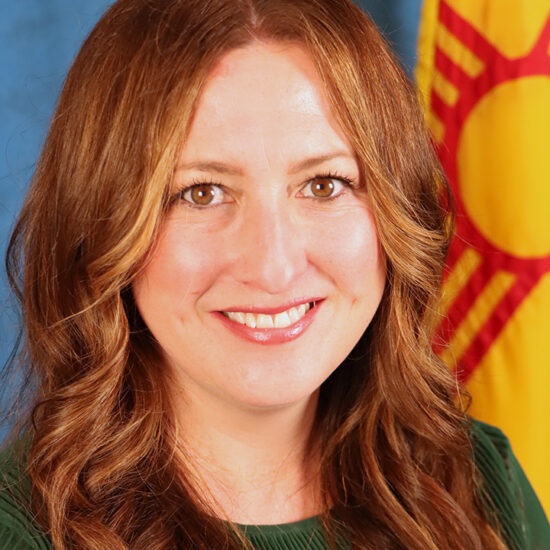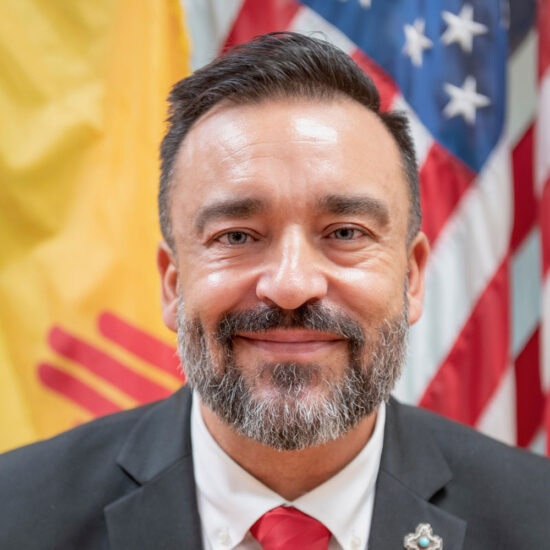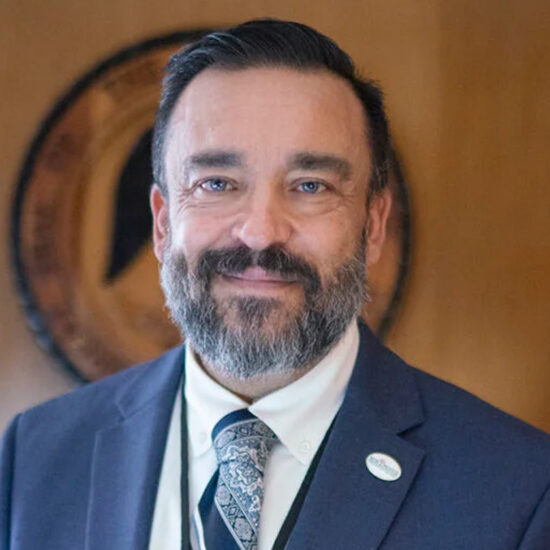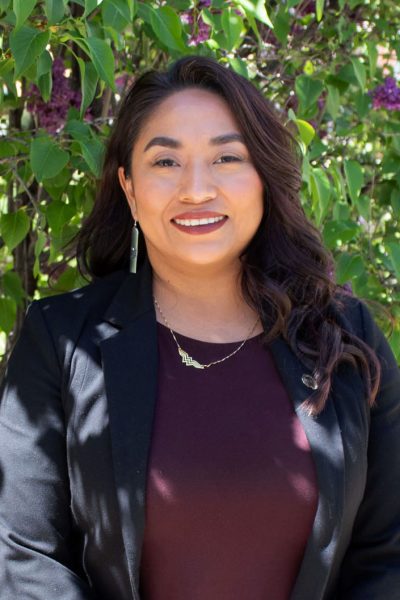
KatieAnn Juanico is the new assistant secretary of Indian Education at the New Mexico Public Education Department. She was announced as the new assistant secretary by Secretary Arsenio Romero on May 9, and has since started her work to inform New Mexico Native American communities that the department is here to support their efforts and help improve their student proficiency, something she plans to do with a cultural acknowledgement about the struggles of balancing both the western and traditional cultures that Native students must navigate.
She was taken aback when she received a phone call from New Mexico Secretary of Education Arsenio Romeo. Juanico thought she might have done something wrong, as receiving a call from such a high-ranking official was unexpected. However, it quickly turned into a moment of joy and celebration when she learned that she had been nominated and selected to be the new Assistant Secretary of Indian Education.
Before becoming the Assistant Secretary of Indian Education in New Mexico, Juanico served as a tribal education director for the Pueblo of San Felipe. In this role, she worked closely with tribal leaders, educators, and community members to enhance educational opportunities and support for Native American students within her tribe. Juanico’s experience as a tribal education director provided her with valuable insights into the unique challenges and needs of indigenous students and prepared her for her current position at the New Mexico Public Education Department.
“I think it’s always important for Native American people to take on these roles,” Juanico said. “I pray that all Native American children have the confidence to take on roles like this.”
As the Assistant Secretary of Indian Education, Juanico is determined to ensure that Native American students see themselves represented within the public education system. She believes that providing culturally relevant education, supporting tribal sovereignty, and addressing disparities in educational outcomes are key priorities.
One of her significant initiatives involves consultation and site visits to tribal communities, fostering direct communication with tribal leaders and educators. In just seven months, Juanico and New Mexico Secretary of Education Romero have visited 21 Pueblos, Tribes, and Nations in the state, listening and learning about the unique needs and priorities of each community.
“We’re there to listen and learn,” Juanico said. “Our role is not to dictate the agenda. We always remind ourselves that we’re there to support tribal sovereignty and acknowledge tribal leaders in their own spaces.”
Additionally, Juanico hosts monthly meetings with tribal education directors, providing a platform for dialogue, sharing updates, and addressing questions and concerns. Through these efforts, she seeks to streamline administrative processes, reduce teacher reporting burdens, and improve the allocation of resources to be more equitable for Native American communities.
Two Worlds
Born and raised in the Pueblo of Acoma, Juanico’s story begins in the heart of rural New Mexico. She is a proud product of Head Start, where her educational journey began. But her path was distinct from the start, taking her from Albuquerque, where she was born like many Native American students, back to the Acoma reservation. It’s in this nurturing environment that she learned essential life values.
Juanico reminisced about her early years at Saint Joseph Mission School, a place where many Native American students from Acoma were educated. The small school, in rural San Fidel, New Mexico, was one of the few school options available to her family.
“My parents cared a lot about my education, enough to choose a location where they had to pay tuition, which was not very common for many Native American families at that time,” she said. Her parents’ dedication to her education, even when it meant paying tuition fees, left an indelible mark on her. It was a clear message that her education mattered deeply to them.
Beyond the confines of the classroom, Juanico’s real learning happened at home and within her close-knit community on the reservation. She grew up in a place known as “dashka,” which translates to “the lake area” in Acoma. Here, alongside her brother and sister, she embarked on adventures that involved walking home from the bus stop, playing in a nearby ditch, and shooting hoops with a basketball goal planted firmly in the reservation ground. These experiences were more than just play; they were a part of her upbringing, instilling values of discipline, responsibility, and cultural significance.
Juanico’s father’s involvement in cattle ranching added another layer to her education. Growing up, every Saturday was dedicated to cattle work. Waking up early, hauling water, and tending to cattle became routine. Butchering became part of the family tradition, marking a journey of bonding, discipline, and hard work.
In addition to these experiences, Juanico cherishes the exposure to cultural ceremonies that her parents provided. These ceremonies, deeply rooted in their tribal heritage, reinforced the significance of Juanico’s cultural values. She said, “My culture has taught me to be respectful, to pray, to seek help when I need it, and to always take care of myself and others.”
Juanico’s path to becoming the Assistant Secretary of Indian Education began with her own experiences as a first-generation college student. Encouraged by her high school senior advisor, Vicki Gonzalez, she applied for the Bill Gates scholarship, which would ultimately cover her tuition throughout her undergraduate and graduate studies.
“Vicki Gonzalez was more than an advisor; she was my guiding light. Her unwavering belief in me and her encouragement to pursue the Bill Gates scholarship changed the trajectory of my life. She showed me the power of mentorship and the impact one person can have on another’s journey,” Juanico said.
With deep gratitude for her upbringing, Juanico embarked on her educational journey, determined to make a difference. She transitioned to public school for middle and high school, graduating as class president from Grants High School in 2005, she chose the path of education, inspired by her mother’s career as a teacher and a family legacy of educators. Her journey led her to become a Lobo at the University of New Mexico, where she completed her undergraduate degree in elementary education with a language arts endorsement.
But Juanico’s thirst for knowledge didn’t stop there. She pursued a master’s degree in educational psychology and is currently on the path to earning her Ph.D. in the same field. Her dedication to education and her ability to navigate the “two worlds” of her cultural upbringing and wWesternized education set her apart as a role model for Native American students.
Juanico explained that the concept of “two worlds” refers to the idea that Native American students often find themselves navigating two distinct cultural and educational environments. On one hand, they have their rich cultural heritage, which includes traditions, languages, and values rooted in their tribal communities. On the other hand, they must adapt to the Westernized educational system and society, where different expectations and norms prevail. Juanico said, “The two worlds theory is just that. We’re living in two worlds. We have our cultural upbringing, but we’re also assimilating into westernized culture. While I learned to navigate that duality very well, I knew that I had an upbringing full of culture and language, prayer, respect, and I knew how to handle and balance that out in a Western public education classroom.” She said that this was not an easy transition, and that many Native Americans struggle to find their way through the cultural differences.
During her academic journey, Juanico became acutely aware of the underrepresentation of Native American students in her classes, both in high school and college. She recognized the need for Native American students to see themselves reflected in their educational experiences and the importance of acknowledging their unique learning preferences and challenges.
A teacher herself, she uses her background to advocate for Native American students and provide insights into their educational needs. Juanico has been teaching at UNM for 11 semesters, where her upbringing on the reservation informs her teaching approach. She said her main focuses are on creating a positive classroom climate, supporting professional development for teachers, and making learning both fun and relevant for students.
A Source of Inspiration
Looking ahead to 2024, Juanico said she is committed to continuing her work in consultation with tribal communities. She plans to focus on efficiency, “meaningful data collection,” and targeted technical assistance to ensure that resources are effectively utilized to benefit Native American students.
Expressing gratitude to sources of inspiration in her life, Juanico said, “I am deeply grateful for the wisdom and cultural values my family instilled in me, especially my mother, who shaped me into a strong Pueblo woman. Their guidance fuels my passion for Native American education. I also owe immense thanks to Vicki Gonzalez, who believed in me and encouraged my educational journey. My younger sister, Mary Helen, is a true role model, balancing motherhood and career aspirations. And I am truly honored to work alongside Secretary Romero, whose unwavering support drives my commitment to improving Native American education.”
Juanico said she has sources of inspiration for every situation in her life. She honored each of these inspirations, from people to the natural world around her, and said that she is always grateful for the opportunities in her life.
Juanico wrote out a message for Native American students in the state, she warned that she might cry when delivering this message and hurried through it, telling students: “Education is extremely important. We learn in the classroom, but we also learn within the home. Education in all its forms will guide your life choices. Be accountable to yourself by holding yourself to high expectations, be confident, and try new experiences, take healthy risks, and reach out to others who genuinely care about you. Take all the advice and discipline that your community has taught you and use it to guide you and keep you on a straight path. you know our tribal leaders always talk about and remind us that all the work that we’re doing today, all the energy that we’re putting into our lives right now are for those that are coming after us, even the unborn children who will take on our roles.”
Katie Ann Juanico’s journey from a small reservation in New Mexico to the forefront of Indian education is not only a testament to her dedication but also a beacon of hope for Native American students striving to overcome educational disparities and achieve their dreams.
